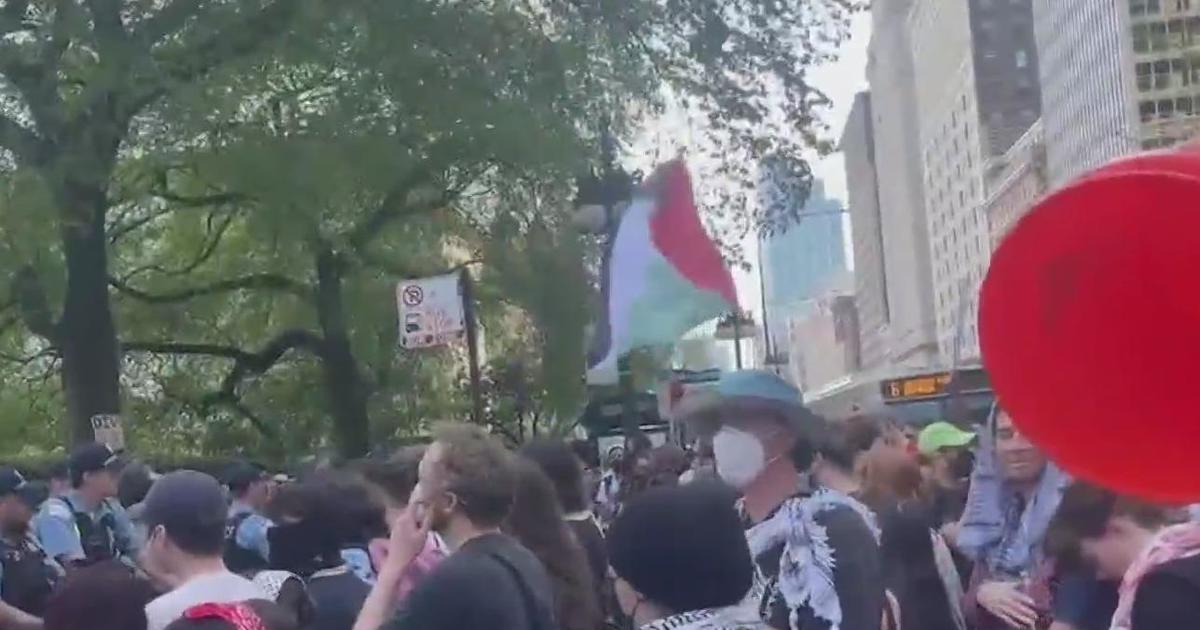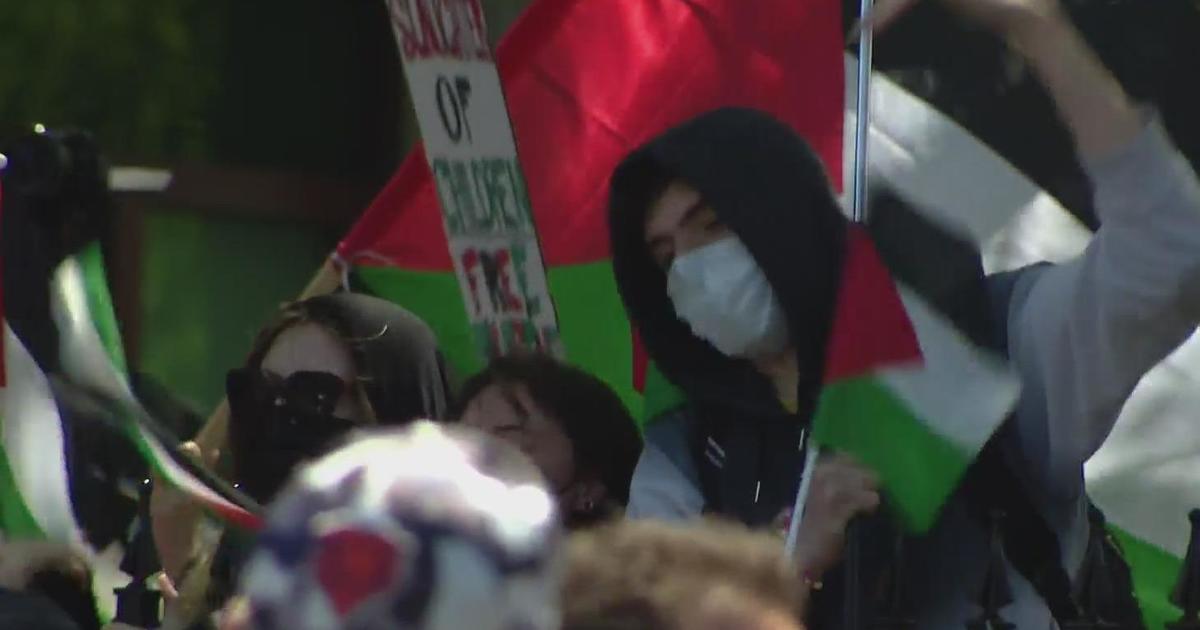University of Chicago students hold pro-Palestinian rally, demand divestment from Israel
CHICAGO (CBS) -- Some University of Chicago students came out Friday to echo the chants that have been heard across many college campuses over the past week – calling on their university to cut ties with Israel in the wake of the Israel-Hamas War.
The rain did not slow the march. About 100 students and some faculty came out to demand the University of Chicago cut financial ties with Israel.
"We're protesting because Israel is committing genocide with the material and financial backing of our government, and with the material and financial backing of the top administrators of our university," said one student Hassan.
The organizers are demanding the University of Chicago end all partnerships with Israeli institutions – including their ties with any collaborative research, exchange programs, or funding of organizations they claim sell weapons to Israel.
CBS 2 is not able to confirm any ties the U of C has to Israel at this time.
The students also asked the university to be more transparent with the way it is spending their tuition dollars.
The protesters' final ask is for the university to acknowledge the destruction in Gaza – especially the dismantling of the region's education system – and to allocate funds to help rebuild Gaza's higher education.
The students marched from building to building, reiterating their requests at every stop. They hoped the students and faculty in each building heard, and heeded their demands.
"We can never make a change on investments - that we know there are some ethical ones, and we know the scope of the unethical ones is larger than what we know – if we don't first have transparency," said Hassan, an undergraduate.
The UChicago students said they stand in solidarity with other encampments across the country that have been built on college campuses in support of Gaza.
Some professors came to show their support of students exercising their First Amendment right to protest.
"It's the right thing to do, right? That's the most important thing," said Callie Maidhof, an assistant senior instructional professor and associate director of Global Studies at the U of C. "It's just a myth that only students do, or should care about something, like the death; the murder of 34,000 people."
Maidhof took part in the march with the students.
"The idea that this is just a radical student cause, or just college students, is not true or helpful to anyone," she said.
CBS 2 asked if the protesters had any intention of starting an encampment at the U of C. They said they weren't sure.
UChicago released this statement, affirming the students' right to protest:
"As part of our commitment to free expression, the University is deeply committed to upholding the rights of protesters and speakers to express a wide range of views. Over more than a century, through a great deal of vigorous debate, the University has developed a consensus against taking social or political stances on issues outside its core mission. The University's longstanding position is that doing this through investments or other means would only diminish the University's distinctive contribution — providing a home for faculty and students to espouse and challenge the widest range of social practices and beliefs. That idea received definitive treatment in the Kalven Report of 1967. As the report states, 'The university is the home and sponsor of critics; it is not itself the critic.' This principle continues to guide the University's approach against taking collective positions on political or social issues outside its core mission, including calls for divestment."


